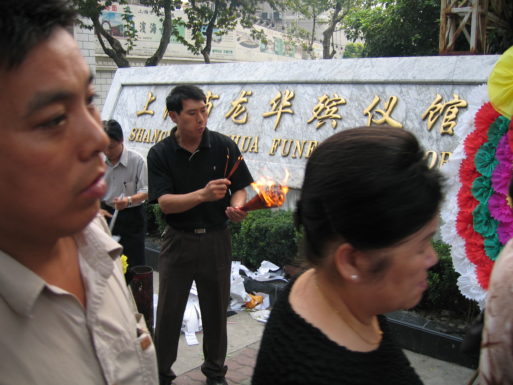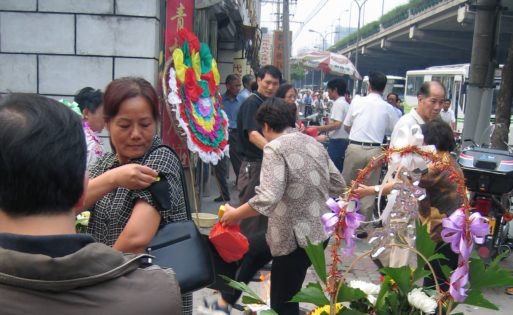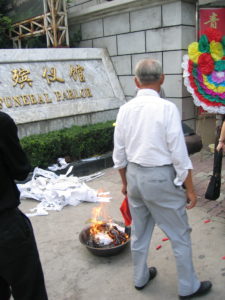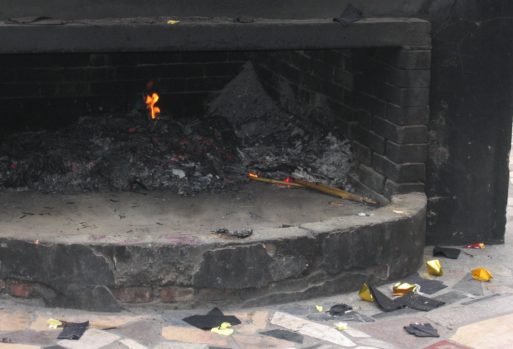Our founder, Suzette, recently visited China and was able to bear witness to a Chinese funeral in Shanghai. China is known for their visually expressive rituals (especially with their Chinese New Year festivities) and their funerals are no different. Below are some photographs of the funeral traditions and rituals that took place in Shanghai, along with an explanation of their significance. While some Chinese funeral traditions will vary depending on the birthplace of the person who died, they often carry a common thread.

Mourner burning joss paper, or “spirit money”
Typically black, dark, or white clothing is worn to a traditional Chinese funeral along with black bands tied to the upper arm as a sign of respect. You can see a woman in the image below tying one of these bands to her arm. Red isn’t worn, as it is associated with celebration and joy. However, it is normal to see the color present on banners and in flower arrangements.

A woman tying a black “respect band” onto her arm
The Significance of Fire, Joss Paper, & Xi Bo

Fire offering of xi bo
In many of these pictures, you’ll notice that fire plays a large role in the Chinese funeral. Attendees and mourners burn incense and joss paper (also called spirit money, ghost money, hell money or hell paper), along with paper effigies that represent material goods (anything from cars and clothing to mansions and servants).
Joss paper is often white with gold foil, but can come in many forms. Some customs fold each joss paper into a specific shape before burning, while others respectfully place a loose bundle or roll into the fire instead.
Traditionally, the Chinese believe that when these offerings of spirit money and paper effigies (collectively known as xi bo) are burned, their smoke will rise to reunite with the person who died and provide them safe passage into the spirit world by allowing them to bribe officials in the afterlife, trade for goods or simply exist comfortably.

Joss paper and xi bo offerings aren’t just used during funerals. They are often burned during any important event or festival, such as the upcoming Chinese New Year (Lunar New Year) and the Qingming festival, a holiday of ancestor worship.

 Chinese Funeral Traditions Observed in Shanghai
Chinese Funeral Traditions Observed in Shanghai


 Terminal Sedation at the End of Life
Terminal Sedation at the End of Life
 National Donate Life Month Reminds Us To Give
National Donate Life Month Reminds Us To Give
 How Dare You Die Now!
How Dare You Die Now!














